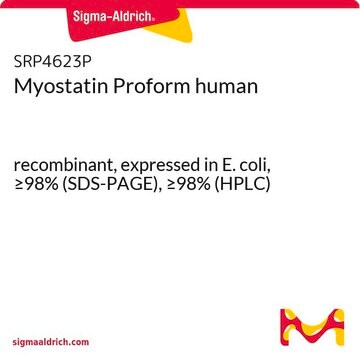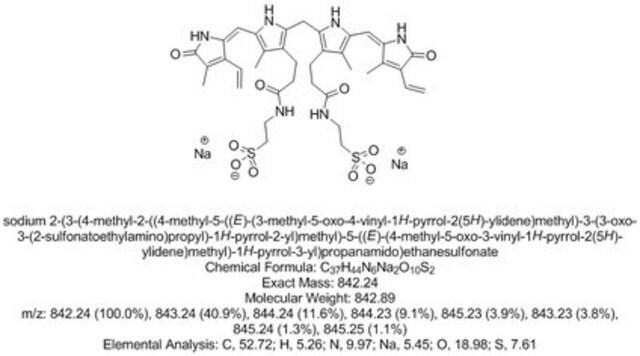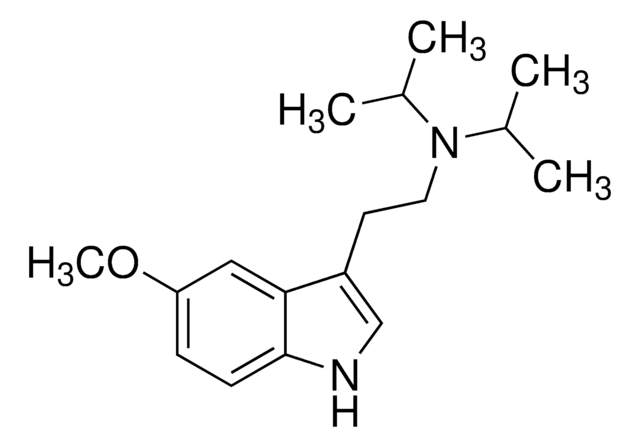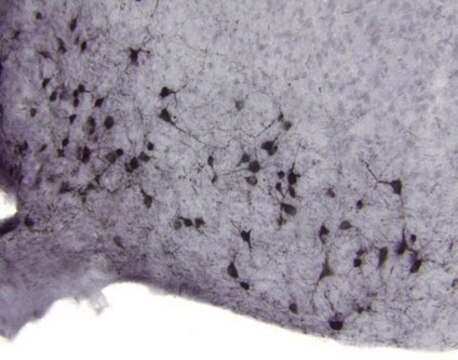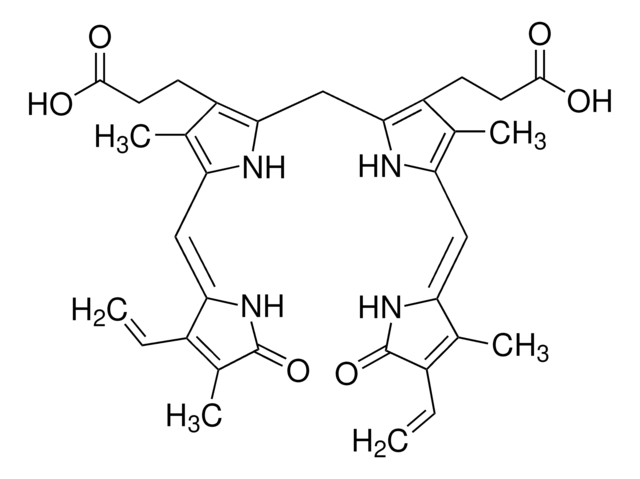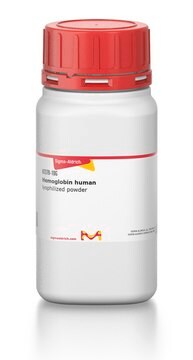M3064
Myostatin human
recombinant, expressed in E. coli, lyophilized powder, suitable for cell culture
Sinónimos:
Growth Differentiation Factor - 8
About This Item
Productos recomendados
origen biológico
human
Nivel de calidad
recombinante
expressed in E. coli
Análisis
≥95% (SDS-PAGE)
formulario
lyophilized powder
mol peso
16 kDa (including a 31 amino-acid spacer and 6-His tag)
envase
pkg of 0.1 mg
técnicas
cell culture | mammalian: suitable
Nº de acceso UniProt
temp. de almacenamiento
−20°C
Información sobre el gen
human ... MSTN(2660)
Aplicación
Acciones bioquímicas o fisiológicas
Código de clase de almacenamiento
11 - Combustible Solids
Clase de riesgo para el agua (WGK)
WGK 3
Punto de inflamabilidad (°F)
Not applicable
Punto de inflamabilidad (°C)
Not applicable
Equipo de protección personal
Eyeshields, Gloves, type N95 (US)
Certificados de análisis (COA)
Busque Certificados de análisis (COA) introduciendo el número de lote del producto. Los números de lote se encuentran en la etiqueta del producto después de las palabras «Lot» o «Batch»
¿Ya tiene este producto?
Encuentre la documentación para los productos que ha comprado recientemente en la Biblioteca de documentos.
Nuestro equipo de científicos tiene experiencia en todas las áreas de investigación: Ciencias de la vida, Ciencia de los materiales, Síntesis química, Cromatografía, Analítica y muchas otras.
Póngase en contacto con el Servicio técnico